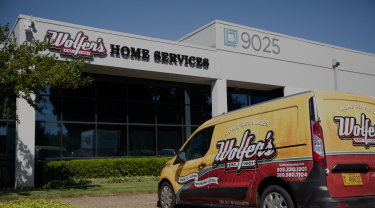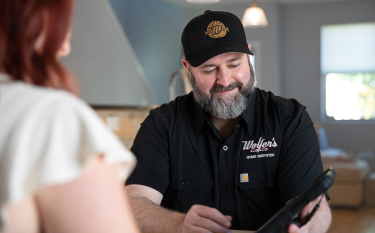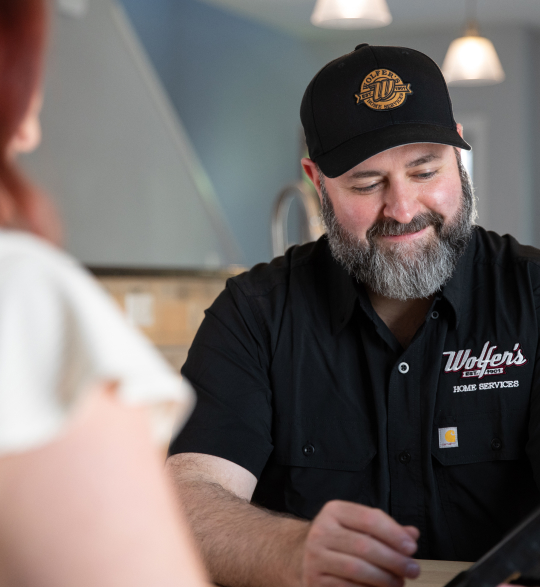Should You Install a Heat Pump?
Portland, OR homeowners and commercial property owners need heating and cooling systems to keep indoor environments comfortable all year long. Even though Portland does not usually experience extreme temperatures, residents still need air conditioning during the summer and heat in the winter.
The historic choice of Portland home- and business owners for heating and cooling has been the installation of Heating, Air Conditioning systems. In recent years, however, heat pumps have grown in demand as a reliable alternative to Heating, Air Conditioning systems.
What Is a Heat Pump?
Heat pumps are single-unit pieces of equipment that reliably replace two-unit air conditioning and heating systems. Heat pumps transfer rather than generate heat. They extract heat from one environment and move it to another environment, conditioning it to either warm or cool the target space.
Heat pumps have similar components to conventional air conditioners. They have compressors and evaporation coils, and they utilize refrigerants. However, whereas furnaces only heat air and a/c systems only cool air, heat pumps can perform either function.
Portland residents and business owners are increasingly choosing to install heat pumps over Heating, Air Conditioning systems. Either they install heat pumps in new construction builds or they replacement worn-out Heating, Air Conditioning units with their smaller-footprint cousins.
For the best heat pump installation company in Portland, call Wolfer’s.
Do Heat Pumps Save Money?
Yes. Heat pumps help homeowners and commercial property save money on heating and cooling bills. Why? Simply because they operate more efficiently.
Heat pumps do not cost significantly more than air conditioning systems. The price spread is quite similar. You can purchase a heat pump for $1,500 to nearly $10,000. An average sized heat pump of decent quality will cost somewhere between $4,000 and $7,000. The exact figure depends on the size of the building being heated and cooled, and the grade of the equipment purchased. There are low-budget models and high-end models.
Because heat pumps operate efficiently, they consume small amounts of electricity. This is where the cost savings occur. For every kilowatt of power a heat pump draws, it produces up to three kilowatts of heat.
Heat pump efficiencies result in a savings of 30% on cooling and heating bills. The United States Energy offices state that the operating cost of heat pumps is one quarter the cost of operating an Heating, Air Conditioning system cooling or heating the same space.
A serviced and maintained heat pump can perform at capacity for over 15 years. A Portland family that spends $300 on its monthly energy bill sees 40% of that outlay going to heating and cooling. Running a heat pump instead of an Heating, Air Conditioning system can reduce the heating/cooling portion by 30%, which would be $36 per month. Over ten years, that savings would total $4,320 and offset the purchase cost of a $4000 heat pump.
Additional savings sometimes occur in tax credits to homeowners who install heat pumps.
Heat pumps are much smaller pieces of equipment than Heating, Air Conditioning systems and take up less space. Their smaller footprint is appealing to many home- and business owners.
Types of Heat Pumps
Types of heat pumps include:
- Air-source (air-to-air)
- Absorption (gas-fired)
- Geothermal
Air-source (Air-to-Air) Heat Pumps
Air-source, or air-to-air, heat pumps are the type that most Portland homeowners and commercial property owners install. This kind of heat pump transfers heat from an air source (as opposed to a ground or water source). Depending on the need for heat or cooling, an air-to-air heat pump will transfer heat inside or outside.
Air-source heat pumps require half the amount of electricity to run than furnaces and conventional heaters. They de-humidify efficiently as well.
In the past, air-source heat pumps were not robust enough to function reliably in places with extreme temperatures. Improved technology now makes them great options for all climates.
Portland homes and buildings with no ductwork can install a mini-split, or ductless, heat pump.
Portland structures with radiant floor heating can benefit from a “reverse cycle chiller” heat pump that produces hot or cold water instead of hot or cold air.
Absorption (Gas-fired) Heat Pumps
Absorption, or gas-fired, heat pumps are not powered by electricity. Instead, they run on natural gas, propane, solar-heated water, or geothermal-heated water. Because most absorption heat pumps run on natural gas, they have come to be known as gas-fired heat pumps.
Absorption heat pumps use ammonia as their active ingredient rather than refrigerant.
Geothermal Heat Pumps
Geothermal heat pumps do not transfer heat from the air. Instead, they transfer heat from the ground or a nearby water source. This type of heat pump usually costs more to install than an air-source heat pump, but it costs less to operate, flattening expenses over time.
Portland homeowners and commercial property owners like geothermal heat pumps because of these benefits:
- Reduced energy consumption (30-60%)
- Humidity-control effectiveness
- Sturdy and reliable
- Can be installed in homes or commercial spaces
- Function well even in extreme temperatures
Heat Pump Installation and Repair Contractor Portland, OR
Installing a heat pump is not a DIY project. Call professionals to install, repair, and maintain your heat pump. Call Wolfer’s, the best heat pump contractor Portland has.
Call the Wolfer’s experts for your Portland heat pump installation and repair.






